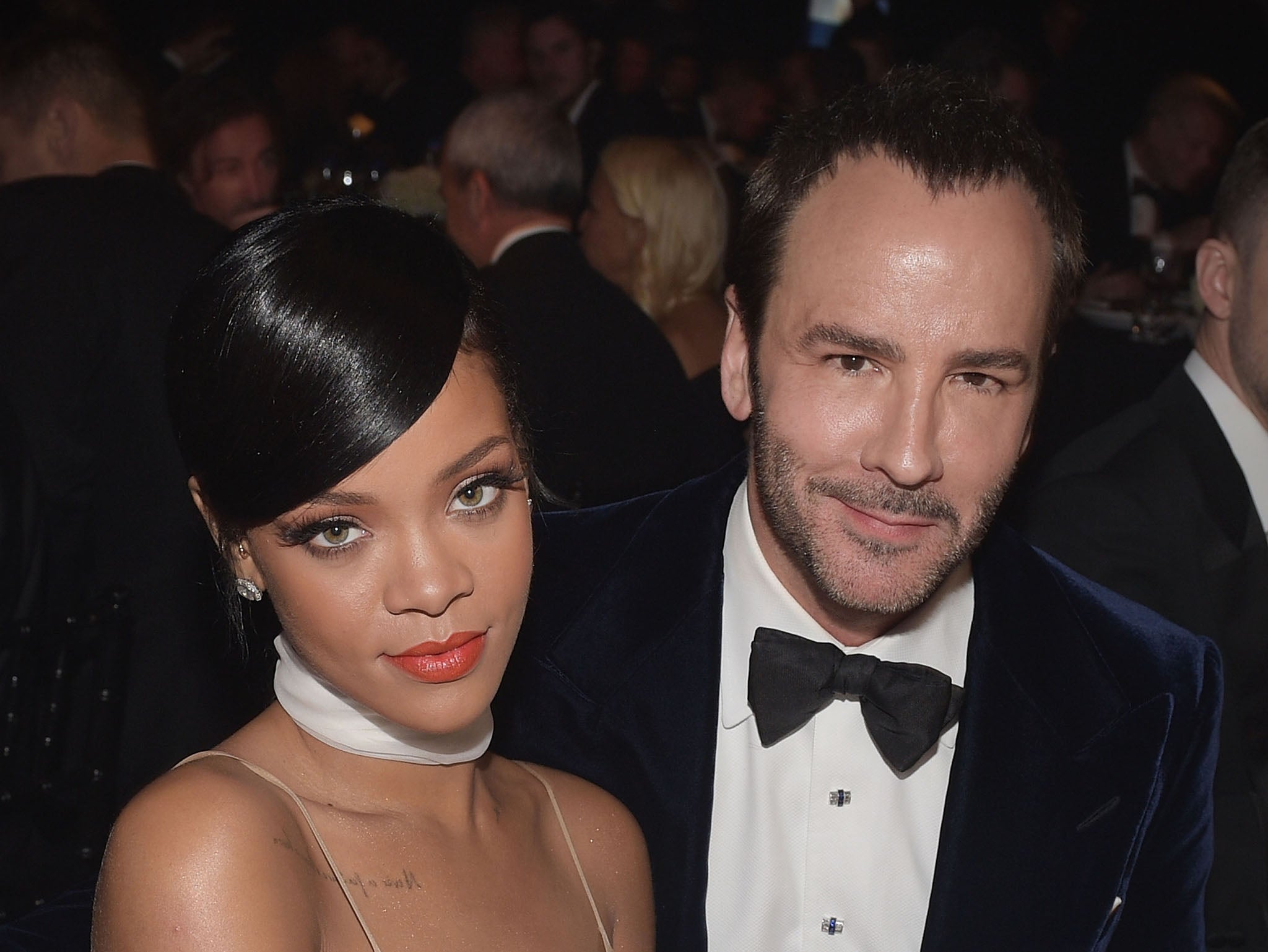Tom Ford urges young people not to forget fight against HIV: 'Of my close university friends, more than half had died from AIDS by 1990'
The fashion designer made an impassioned speech to the audience, which included Rihanna and Miley Cyrus, at the amFAR Inspiration Gala

Your support helps us to tell the story
From reproductive rights to climate change to Big Tech, The Independent is on the ground when the story is developing. Whether it's investigating the financials of Elon Musk's pro-Trump PAC or producing our latest documentary, 'The A Word', which shines a light on the American women fighting for reproductive rights, we know how important it is to parse out the facts from the messaging.
At such a critical moment in US history, we need reporters on the ground. Your donation allows us to keep sending journalists to speak to both sides of the story.
The Independent is trusted by Americans across the entire political spectrum. And unlike many other quality news outlets, we choose not to lock Americans out of our reporting and analysis with paywalls. We believe quality journalism should be available to everyone, paid for by those who can afford it.
Your support makes all the difference.Tom Ford paid homage to his late friends who lost their battle with AIDs at the height of the epidemic in the Eighties in a moving speech at the amfAR Inspiration Gala in Los Angeles.
The fashion designer highlighted the devastation caused by the disease before treatment to control the effects of the HIV virus were available, and warned young people today not to "let down their guard".
"I moved to New York in 1979 just before my 18th birthday," he told the audience, which included Miley Cyrus, Rihanna and Gwyneth Paltrow.
"Of my close friends at NYU [New York University], more than half of them had died from AIDS by 1990.
"I remember the fear of the early 1980s. I remember the feeling of having dinner with a friend and running into someone I hadn't seen and the light would rack across their face and my heart just sank –you knew.
"They looked fine but there was something. There was something in their eyes. There was something about the look on their faces that told you that the next time you saw them they wouldn't look as well."
He went on to describe starting his relationship with husband Richard Buckley, a fashion journalist and LGBT activist, 28 years ago.
"We would meet for dinner and then we would each go to a different hospital to visit our best friends who were dying of AIDS," he continued.
The couple both underwent tests for the virus in 1988 – around the same time that Buckley was diagnosed with cancer.
"I remember Richard calling me in tears with his results to tell me joyfully that he only had stage four cancer and not HIV.
"Who could have imagined that only having stage four cancer was something to celebrate?"
Ford cited the leaps and bounds not just in terms of medical advances, but also shifting attitudes towards combating AIDs, that have been made over the last 30 years.
However, he concluded with a call to young people to continue to educate themselves on the disease.
"Today's generation of young adults have never known the ravages of AIDS as some of us have and for that reason, in some cases, they have let down their guard," he said. "We cannot let down our guard."
His words come as David Mixner, a veteran LGBT activist and former advisor to Bill Clinton, admitted to assisting the suicide of eight men dying of AIDs in the Eighties as part of an underground euthanasia network.
Speaking to the Daily Beast after his performance, he said: "I am not worried, and what I did was right.
"In the end I wanted people to know about these decisions I had to take in my 30s that no one should have to take in their 30s."
One of the deaths he assisted, he said, was that of his late partner Peter Scott.
"This was the man I loved most in my life. AIDS was such a horrendous death.
"It was slow, painful, you’d waste away, starve, be covered in lesions. Some of those with it knew they did not want to live beyond a certain point. Out of a desire for dignity and honour, they asked their friends to help them die."
Join our commenting forum
Join thought-provoking conversations, follow other Independent readers and see their replies
Comments